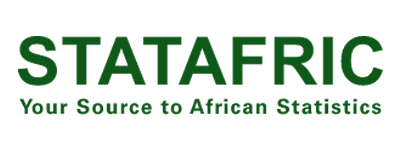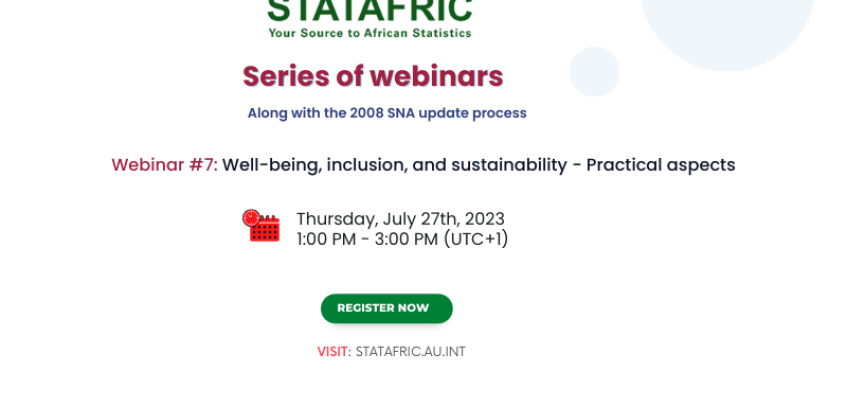Background
As the economy evolves and policy and analytical needs change, the System of National Accounts (SNA) is periodically revised to reflect the real changes taking place within economies, the evolution of financial and fiscal instruments, and the improvements in accounting methodologies.The SNA, as a macroeconomic statistical manual, is regularly being revised to reflect changes to the economy, to process improvements in the measurement of specific economic phenomena, and/or to update the way in which results are presented to users. The last version of the System of National Accounts dates to 2008 and a lot has changed since then.
For the current 2008 SNA revision,several workstreams organized by the Advisory Expert Group on National Accounts (AEG) and Task Teams were launched to address issues related to some identified priority areas. Consolidated guidance notes (GNs) were developed and endorsed (or are under global consultation) for each of the prioritized issues covering both conceptual and practical guidance.Identified issues have been grouped into the following main areas:globalization, digitization, well-being and sustainability, Islamic finance, communications, payment and financial systems, informal economy; statistical units and balance of payments; and the long-term research program of the SNA.This work is coordinated under the auspices of the Inter-Secretariat National Accounts Working Group (ISWGNA) to ensure global representation in the deliberation of issues under consideration and the successful implementation of the results in international standards or manuals.
Objectives
The African Union Commission, through African Union Institute for Statistics (Statafric), and in line with its commitment to further harmonizing and upgrading official statistical systems across Africa, seeks to support and accompany the compilers of national accounts in African countries in this updating process and anticipate the upcoming recommendations. Indeed, through the PAS program, Statafric has already provided a wide range of technical assistance to African countries in the field of national accounts. While in this context of the SNA update, Statafricaims to tag along with national accountants in Africa, enable/coordinate their active participation and support them in clinging to the current update process.
A first round series of webinars on the SNA update process was organized by Statafric during the first half of 2023, in collaboration with the Economic Commission for Africa (UNECA) and aimed to further inform Member States about the current SNA review process and to collect their proposals/contributions on the issues addressed for submission to the ISWGNA.In this framework, the purpose of those webinars was to achieve the following objectives and the related documentation: (i) inform compilers on progress with the SNA and BPM update program; (ii) introduce conceptual / compilation topics to encourage informed participation in global consultation on Guidance Notes (GN); (iii) collect and check information from the baseline evaluation on the statistical capacity of countries to implement the new recommendations; (iv) gather feedbacks on users demand for the new recommendations and (v) explore potential country volunteers for early implementation of the new recommendations.
Following this first wave of six fruitful virtual meetings (which covered the different contours of the SNA revision process: institutional organization, main categories addressed, conceptual foundations and content of the endorsed guidance notes, the test protocol and early implementation exercises of the recommendations, etc.), Statafric is embarking on a second round of webinars as an extension of the first series, but giving these meetings a more operational and practical character around the implementation of the recommendations in order to anticipate their requirements in terms of data sources, prior statistical work and capacity building.
Practical issues in enhancing and broadening the SNA framework for well-being and sustainability.
The proliferation of alternative approaches to address well-being and sustainability goes back many decades. Significant recent global initiatives called for statistics to move ‘Beyond GDP’ and close the gap between aggregate production, citizen’s wellbeing and long-term sustainability and reflecting the view that the economic well-being of households is a complex multidimensional phenomenon, difficult to address with a single summary indicator. Understanding is therefore enhanced by a coherent information system that enables analysis of its relevant, interlinked, dimensions. . .
While some enhancements to key aggregates are required, more broadly, the challenge for the 2025 SNA was to propose new datasets and indicators that can be linked to standard macroeconomic measures to shed light on issues affecting well-being and sustainability. Clear linkages to the sequence of economic accounts means added elements benefit from the coherent SNA conceptual and methodological framework and allows policy makers to directly assess how economic events impact elements of wellbeing and sustainability. The approach also ensures a high degree of cross-country comparability in the added dimensions.
In accordance with the 2025 SNA research agenda, the Well-being, and Sustainability Task Team (WSTT) has developed a strategy covering five key areas corresponding to the policy priorities discussed: distribution of household income, consumption, saving and wealth - unpaid household service work - labor, education, and human capital - health care - environmental-economic accounting. These are explored in detail in WSTT guidance notes, providing key recommendations and describing how the existing SNA sequence of accounts can be expanded to provide this more comprehensive information.
For the webinar planned for the end of July, the terms of reference cover a selection from the next recommendations appearing in the guidance notes for the theme of well-being, inclusion, and sustainability, highlighting above all the practical aspects of their implementation. To pave the way for concrete discussions and exchangeson the feasibility and operationality of these recommendations, the webinar should tackle specifically the following topics:
Unpaid household service work
The 2008 SNA excludes unpaid household service activities (except for owneroccupied housing) from its production boundary mainly for practical reasons. Understanding this work is nonetheless crucial to the analysis of household well-being. Individual well-being is affected by both paid and unpaid work, with each feeding into goods and services consumed by households. The measurement of unpaid work also contributes to a fuller understanding of economic growth, factoring in the impact of shifts across the SNA production boundary for many activities.
Guidance note WS.3 recommends the regular compilation of accounts on unpaid household service work at least every 5 years, to complement measures in the main sequence of economic accounts. These measures will be used to derive extended estimates of adjusted GDP including unpaid household service production, as well as complementary measures of household (adjusted) disposable income, reflecting the implicit income derived from unpaid household service work.Accounts for unpaid household service work will provide insights into structural changes between paid and unpaid work, highlighting the services mostaffected.
Distributed National Accounts (DNA)
Within the SNA update process, guidance note for distribution of household income, consumptionand wealth was developed, reflecting the greater insight into material well-being for the overall household sector and the need for more insight in how different household groups are faring. Obviously, aggregates and average growth rates only provide a partial story,which may conceal large discrepancies between different types of households. This asks for the compilation of distributional accounts that consider the jointrelationships between income, consumption, and wealth, also allowing the computation of multivariate indicators (such as consumption-to-income, debt-to-income, or wealthto-income ratios) for the various breakdowns of the household sector.
The compilation of household distributional results entails breaking downresults for the household sector as defined within the System of National Accounts, into more granular subsectors consisting of specific groups of households. This should be done along the whole sequence of interconnected accounts representing different types of economic activity occurring within a time period, including balance sheets that record stocks of assets and liabilities held by the household sector at the start and end of that period. This will lead to a consistent and comprehensive description of different groups of households across the various accounts.
Anticipating the implementation of the commonly identified recommendations
Within the current SNA update process, the work on early implementation forms an important component of enhancing the preparedness of countries for implementing the upcoming recommendations after their endorsement by the Statistical Commission in 2025.A preliminary list of guidance notes has been developed for a potential early implementation exercise. Work is under way on developing detailed specifications for the early implementation phase, identifying, and inviting countries to participate, and pinpointing possible technical assistance for countries that may require it. Supporting documentation and training to assist with early implementation will also be developed. It is expected that the early implementation phase will involve a wide range of countries drawn from all regions, including countries at different stages of development, and that the regional commissions will be closely involved in this work.In this perspective, the webinar will earmark a session to gauge national priorities among the categories addressed by the update processes, gather feedbacks on the new recommendations or information on the countries' implementation plans, and foster potential country volunteers to adhere for early implementation of the new recommendations.
Webinar content
According to this view, the webinar will simultaneously display practical aspects of the WSTT’s guidance notesand recommendations and discuss to what extent national accountants across Africa should take ownership of these guidelines and set the stage for their realization.
Specifically, the webinar working sessions should consider and exchange on the following points:
- Exchange on expanding the SNA central framework and share national experiences on how to capture activities taking place outside the boundaries of the market economy.
- Provide a concrete illustration of the implementation of Distributed National Accounts (DNA) and discuss issues that become relevant when breaking down results for the household sector.
- Sound national priorities among the categories addressed by the update processes and explore potential volunteers for early implementation of commonly identified recommendations.
Webinar running
Facilitator / Moderator& Presenter: Statafric-UNECA - Country representatives –INSEE (France).






